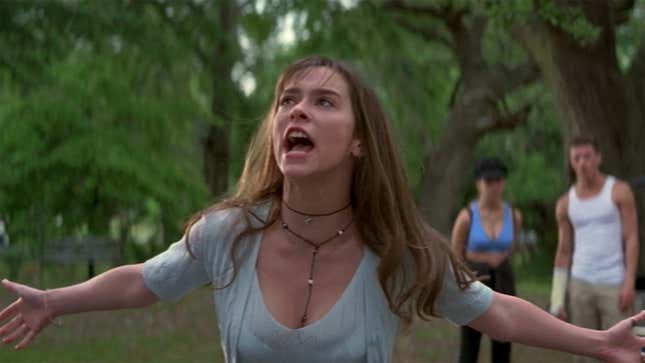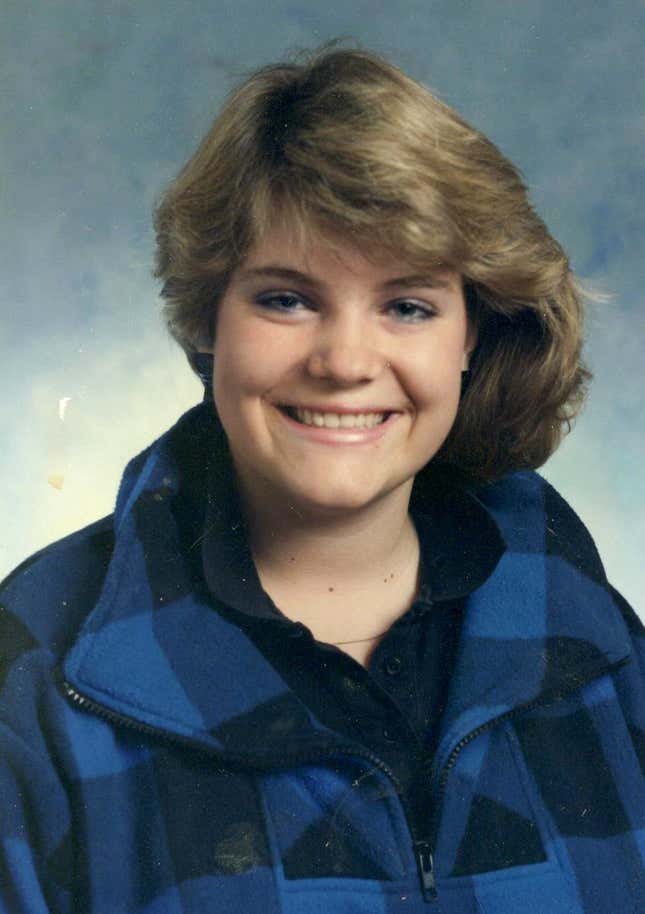Why the Author of I Know What You Did Last Summer Hated the Movie
"I’m particularly sensitive about desensitizing kids to violence and turning murder into a game," she said in a campaign to bring her dead daughter justice
EntertainmentMovies
Screenshot: Mandalay Entertainment
After sitting through the 1997 slasher movie based on her 1974 novel I Know What You Did Last Summer, then-63-year-old author Lois Duncan had a message to those who might enter a similar theater: Don’t.
“Don’t go see it,” she reportedly wrote in an email that she sent to friends and family on October 20, 1997, three days after the movie had landed in theaters. ”It is worse than bad. It’s totally sick,” she wrote of the flick that debuted at No. 1 at the box office during the late ’90s slasher boom and would ultimately gross more than $70 million against a reported $17 million budget.
So serious was Duncan about her objections, in fact, that she would go on to speak out against the movie that bore her book’s name several times in the press. Over the course of the next month, give or take, in what amounted to a mini-media tour, she shared her disgust and disdain with no fewer than five outlets around the country. Her daughter Kerry Arquette, a criminologist, recalled during a phone conversation with Jezebel that her mother immediately contacted her after seeing the movie and told her never to see it. She still hasn’t.
By the time of the 1997 movie’s release, Duncan had been a well-known author for decades. She wrote the kind of young adult novels that were staples of school book fairs. Summer of Fear (1976), Killing Mr. Griffin (1978), and I Know What You Did Last Summer were all creepy, suspenseful books—concerned with witchcraft, kidnapping, and manslaughter, respectively—but they weren’t exactly “horror,” and they certainly weren’t slashers. In Duncan’s book, a group of teens who accidentally killed a boy are then haunted by letters bearing the titular warning. In the movie, a similar group of teens receives similar letters, not to mention fatal fishhook wounds by a sadistic villain.
“It’s the last message I would ever want to give kids—that violence is a game and fun,” Duncan said in an article that appeared in Albuquerque Journal, which printed parts of her reaction letter. “The gore was beyond belief. I write suspense and scary stuff, but I have never written gore in my entire life. I have never sensationalized violence. It’s always been a vehicle to show the pain that violence can cause. There’s so little connected to my book (in the movie) that I don’t know why they ever wanted it.”
Duncan’s crusade was about more than standards of taste. The offense she took at the depiction of wanton violence in a property long connected to her name was personal: “My daughter Kait was chased down, and her brains were blown out,” Duncan told the Chicago Sun-Times. “So I’m particularly sensitive about desensitizing kids to violence and turning murder into a game.”
Kaitlyn Arquette had been shot twice in the head while driving on July 16, 1989, in her hometown of Albuquerque, New Mexico. For decades, the case went unsolved and to this day, no one has been charged in the killing, though Kerry Arquette expects that to change shortly after a recent confession (more on that in a minute). Duncan kept a blog regarding her daughter’s killing and wrote two books on the subject, 1992’s Who Killed My Daughter? and 2013’s One to the Wolves: A Desperate Mother on the Trail of a Killer. Gang activity and a police cover-up were among the factors Duncan suspected were keeping her dead daughter from posthumous justice.
Now there is an I Know What You Did Last Summer reboot series on Amazon—it has about as much in common with the 1997 movie as the 1997 movie did Duncan’s book, which is to say, virtually none, rendering the property essentially unrecognizable from its source material—but Duncan is no longer around to decry it. She died in 2016 at age 82. But Kerry Arquette thinks she knows what her mother would make of the series, which also contains a good amount of bloody violence.
-

-

-

-

-

-

-

-

-

-

-

-

-

-

-

-

-

-

-

-

-

-

-

-

-

-

-

-

-

-

-

-

-

-

-

-

-

-

-

-









































